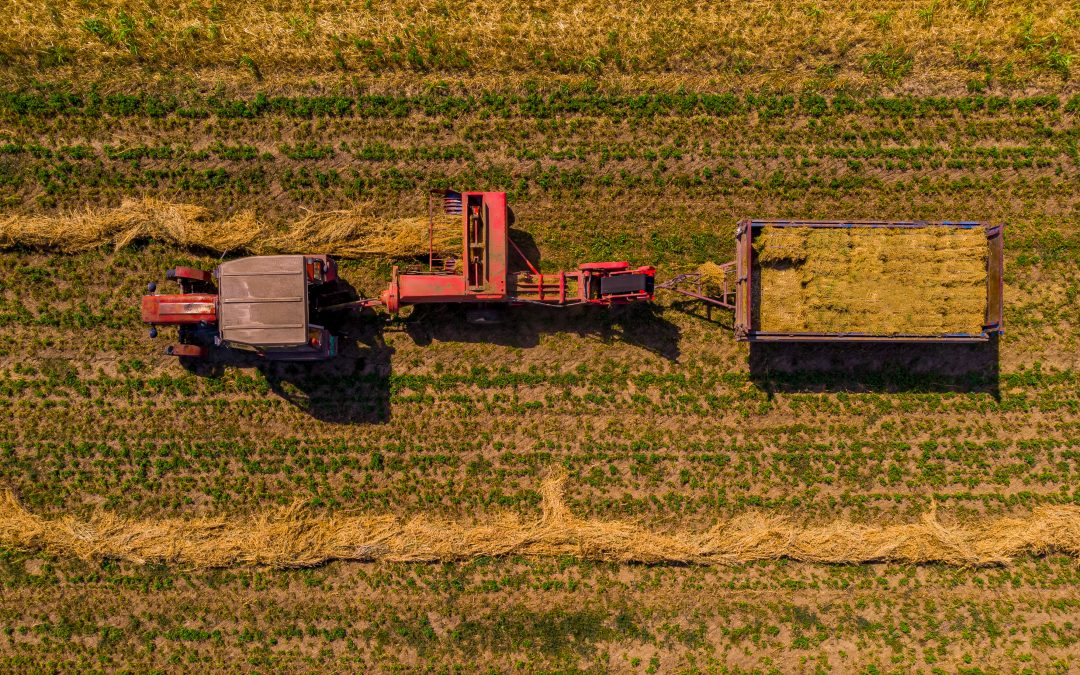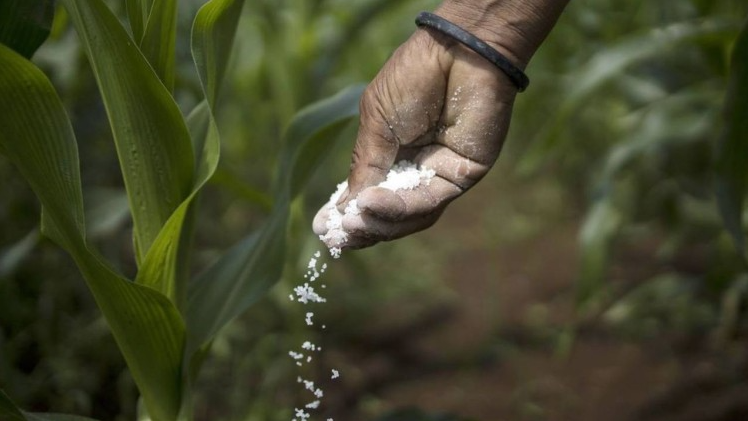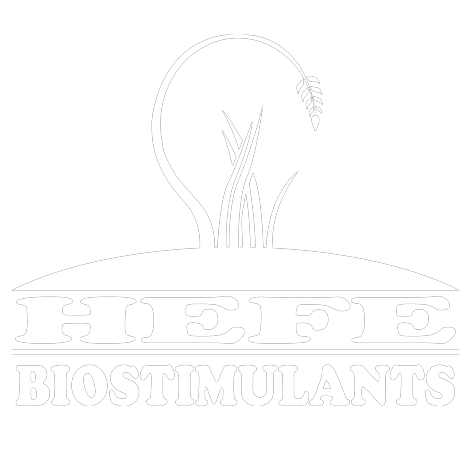
by Hefe | Jan 16, 2024 | News
In a groundbreaking move that promises to reshape the landscape of American agriculture, Hefe Biostimulant, a leading player in the fertilizer industry, has introduced a new line of revolutionary agricultural fertilizers to the U.S. market. These innovative products are poised to elevate crop yields, enhance soil health, and contribute to sustainable farming practices.
Breaking the Mold: Advanced Formulas for Superior Results
Traditionally, agriculture has relied on conventional fertilizers, often laden with chemicals that may have adverse effects on the environment and long-term soil fertility. [Your Company Name] seeks to challenge this status quo with its cutting-edge fertilizer formulas, carefully crafted to deliver optimal nutrients to crops while minimizing environmental impact.
Our new line of fertilizers incorporates state-of-the-art technology and extensive research to provide farmers with a sustainable and efficient solution for their crop management needs. These advanced formulas not only enhance nutrient absorption by plants but also contribute to soil structure, fostering a healthier and more robust agricultural ecosystem.
Environmental Stewardship: A Priority for Hefe Biostimulant
As the agricultural industry faces increasing scrutiny for its environmental footprint, Hefe Biostimulant is committed to being a leader in sustainable farming practices. Our fertilizers are developed with a focus on minimizing greenhouse gas emissions, reducing nutrient runoff, and promoting soil conservation.
By choosing [Your Company Name]’s fertilizers, farmers can align their practices with the principles of environmental stewardship, ensuring a more sustainable future for agriculture and the planet.
Empowering Farmers: Education and Support
Recognizing the importance of education in implementing these innovative fertilizers effectively, Hefe Biostimulant is dedicated to providing comprehensive support to farmers. Our team of agronomists and experts will offer guidance on product application, optimal usage, and the integration of our fertilizers into existing farming practices.
Furthermore, Hefe Biostimulant will host workshops, webinars, and informational sessions to empower farmers with the knowledge needed to maximize the benefits of our advanced fertilizers. This commitment to education is a cornerstone of our mission to foster a community of informed and empowered farmers.
A bright Future for American Agriculture
As Hefe Biostimulant takes this bold step into the U.S. market, the agricultural landscape is on the brink of a transformative period. With a focus on innovation, sustainability, and education, Hefe Biostimulant aims to be at the forefront of this positive change, providing American farmers with the tools they need to cultivate healthier crops, protect the environment, and secure a prosperous future for agriculture in the United States.

by Hefebiostimulants | Sep 27, 2023 | News
As a keynote pattern, the evolution of inflationary pressures has always conditioned the future outlook of the Spanish economy as a whole.
It is not a novelty that the primary sector of agriculture has experienced an increase in its production costs for some time now, and to which we must add now the Ukrainian crisis.
The higher the production costs, the lower the sector develops
With most of the statistics for 2021 already published, we can see that the value of cropproduction increased by 10.7%, due to higher prices of products such as olive oil, cereals or industrial plants. Negative news for agricultural production as this is where its customers belong.
Farmers’ difficulties to transfer the increase in cost to the retail price is a structural problem that is difficult to mitigate for many reasons:
- Severity in demand
- Seasonality in the market
- Fragmentation of chain operators
In addition to all this, the current geopolitical crisis must be added as it aggravates the root of the problem for obvious reasons.
The interpretation of the increases in agricultural costs is reflected in the fact that agricultural fertilizer manufacturers have been particularly affected within this framework. The production price increased by 80.5% in 2021 due to the lack of chemical ingredients to carry out the fabrication, and it looks like the situation in Ukraine will maintain this level through 2022. The lack of Russian ammonium nitrate and other mineral fertilizers is the main focus in this worrying cost increase.
Fertilizers: an expensive good to produce
The already increased gas prices last year were the cause of the temporary closure of some fertilizers factories in Spain, and now, with the international conflict, the situation has worsened with further costs raised. This means that the past increase in prices is likely to be followed by a further increase in costs.
This situation became worse due to the price increases resulting from the mismatch between global supply and demand, plus the rising cost of electricity (the fertilizers industry needs a high consumption of this energy source), as well as the increase in prices of carbon dioxide which has been tripled since the beginning of 2021.
These circumstances can have a serious impact on conventional fertilizers manufacturers in Spain and Europe, which could even lead to the closure of more factories, capacity reductions or the relocation of the industry to other countries.
Organic fertilizers vs. fertilizers crisis
It is understandable to observe how the countryside is on alert due to the reduction of fertilizers supply and price rises in products, being these items indispensable for the growth of crops.
In light of this distressing situation, manufacturing companies such as ours are trying to contribute in the best possible way in order to supply the market against the decrease of fertilizer supply.
The key to alleviate this need can be found in the type of organic fertilizers, such as those we produce at HEFE Fertilizer. Replacing where possible those chemical components that are so scarce for more natural formulas driven by biotechnological research.
Products that advocate the mineral transformation which provide as many nutrients as chemical fertilizers, and which aims are the microbiological balance for an optimum soil fertility and a better hydration through the work of beneficial bacteria and microorganisms for the crop.
In summary, the crisis in fertilizer production —as in any other crisis resulting from the current economic situation— is to try to put a stop to it through viable alternative options that companies can offer. It is now when sustainable models are necessary not only to be environmentally friendly, but also to meet pure demand.

by Hefebiostimulants | Aug 20, 2023 | News
On 2 August we will have consumed all the resources that our planet is capable of generating in a year. This means that on this day we will have reached the limit set by the Earth’s overcapacity and that, from that moment onwards, we will enter an ecological deficit.
The ecological deficit marks two serious aspects to take into account: first, that we have already consumed the natural resources that our planet generates for one year; and second, that everything we consume from the present moment until the end of the year, is consumption of future resources to supply present needs.
In other words: Once the overcapacity date (calculated annually by dividing the planet’s biocapacity by humanity’s ecological footprint and multiplying it by the days of the year) is reached, we will have already consumed our annual natural capital before its time.
Compared to the Earth’s overcapacity date in 2022, the day in 2023 is 5 days later than last year. And although this may seem a positive figure at first glance, the difference is so small that it is considered insufficient. To reach a truly positive target, it would be necessary to delay the Overcapacity Day by at least 19 days over the next seven years.
The main causes for these poor figures are mainly due to human abuse of resources: deforestation, overfishing and overfarming. And it is the latter that we can talk about best, as agriculture is the sector in which we work and try to improve.
Sustainable Agriculture vs. Earth’s Overcapacity
As the world’s population continues to grow, the demand for food and other agricultural products increases exponentially, resulting in this unsustainable pressure on the planet. Earth Overcapacity is an urgent call that confronts us with the reality of the depletion of our natural resources.
In this context, promoting sustainable agriculture is presented as a viable and necessary response to improve the current overcapacity figures. This type of agriculture seeks to optimise agricultural production without neglecting the secondary objective of minimising environmental and social impacts. It seeks to balance the farmer’s improved production with the conservation of natural resources and the protection of the ecosystems in which the activity is carried out.
Sustainable agriculture, through impact-conscious practices, seeks to improve the ability of plants to increase their resilience to environmental stresses such as drought, salinity problems and temperature extremes. When plants are more resilient, crop losses due to adverse conditions are reduced and this has a positive impact on food security and the agricultural economy.
Sustainable agriculture represents a promising opportunity to improve the current Earth Overcapacity figures. By increasing crop efficiency, reducing the need for chemical inputs, improving environmental resilience and encouraging responsible practices, we can move towards a future where production is sustainable and environmentally friendly.
At HEFE Fertilizer we are proud to have such practices as one of our core values, to contribute to building a more balanced and prosperous world for new generations. We strive to promote both sustainable agricultural practices and to reduce our own carbon footprint through eco-friendly manufacturing practices. We are convinced that the sustainable agriculture we promote is the key to protecting our ecosystem and regulating the Earth’s overcapacity.
Biostimulants: a brake on agricultural overexploitation
At HEFE Fertilizer, we are committed to promoting sustainable agriculture through the biostimulants we develop. These products, based on 100% natural organic substances and free of synthetic chemical impact, act as catalysts enhancing the capacity of plants to absorb nutrients, resist abiotic stress and improve their plant development. Unlike traditional chemical fertilizers, biostimulants not only aid plant nutrition, but also promote soil balance and encourage greater diversity in the agricultural environment.
Therefore, the use of biostimulants within the framework of sustainable agriculture as a response to the problem of Earth’s Overcapacity is a great success as an environmental strategy. Using biostimulants reduces the need to expand crop areas (helping against deforestation and habitat degradation) and limits the use of chemical fertilizers (reducing soil and water pollution).

by Hefebiostimulants | Aug 20, 2023 | News
The soils of our planet as a whole are one of the most complex and diverse ecosystems we have, as they provide humanity with the largest percentage of the volume of food available and provide us with a wide variety of essential services, serving us as a carbon store and being one of the main natural regulators against the greenhouse effect.
However, soil is an asset for humanity that is as important as it is finite. The rapid growth of the human population in recent decades, increasing to 6.1 billion in 2000 and projected to reach 9.8 billion in 2050 —and with it, its growth in resource consumption— puts unprecedented pressure on the soil through intensification of agricultural production.
Such intensification is having a serious and irreversible impact on our fertile soils, causing tremendous losses of organic matter and leading to a considerable increase in the emission of greenhouse gases; it is also contributing to the habit of over-applying fertilizers to crops to accelerate production cycles, which is affecting the future quality of useful land (erosion, contamination, acidification, salinization and loss of genetic diversity). Thus, this systematic degradation is a long-term impediment to soils continuing to provide basic services —as in their essential task of supplying food— and to continue to function as an environmental protector.
Soils themselves, due to their condition as the main provider of basic needs, suffer today their greatest overexploitation. We must remember that it is not only exploited as a means of producing food, but also as a producer of essential goods such as energy, fiber and physical materials for infrastructure (wood, metals, minerals). The increase in these types of consumption is linked both to the accelerated growth of the human population and to the new consumerist lifestyle we lead in our society today.
To get an idea, if we take into account the exponential increase in consumption and population growth, the ideal to meet future demand would be that food production would increase by 70% between 2005 and 2050 to achieve global food security. But what will happen to our soils if we increase the overexploitation we are talking about to achieve these results?
We can understand the importance of such a limited and finite asset as soils, so how should we protect these ecosystems in the face of the problem generated by the voracity of their resources?
Improved farming systems and practices as ecosystem protection
From the agricultural sector, the best bet we can make to protect endangered soils is to advocate cultivation practices more consistent with the degree of environmental impact and degradation of the environment after uses, giving priority over the rush to obtain a quick production. Betting on quality and long-term terms, over careless immediacy in the short term.
But what particular practices could we promote for this change in a better working approach:
- Balance the amount of nitrogen supplied to the crop with the amount demanded by the plant. This can be controlled by applying slow nitrogen liberalization products or by controlling fertilization cycles during the growth phase. With this practice we will be able to reduce acidification, substantially reduce the emission of nitrous oxide from the soil and reduce other types of adverse impacts.
- Correct and restore marginal soils included in the set of arable land, considered the least productive due to their advanced degradation.
- Use conservation agriculture technics, such as reduced tillage, to reduce organic matter losses, increase infiltration and water storage capacity, and reduce erosion. This measure contributes to the sequestration of calcium in the soil and reduces erosion by improving soil structure and fertility.
- Avoid agricultural practices that leave considerable residues in soils and work to recover contaminated areas.
- Improve irrigation quality and scheduling to reduce the negative impact of saline soils.
Faced with the obvious problem of soil ecosystem degradation, these measures help to counteract the rapid deterioration to which we seem to be heading. Not only because they have significant positive effects on the conservation and recovery of agricultural land, but also because beyond that, the more these practices and tillage habits are normalized, the greater the awareness of the problem that we in the agricultural sector will acquire. To become aware and make this problem visible is the first step so that various spheres —economic, social and political— take the problem into account and address it as a whole.
HEFE Fertilizer and the problem’s awareness
From our company, we are aware of this great global problem that not only affects the rural world. As we have been able to analyze, the protection of soil ecosystems is an issue that affects us all as a society.
Therefore, since its inception, HEFE Fertilizer works from the field of research and development to formulate biotechnological products 100% ecological which promote these new ways of sustainable agriculture, enabling the land correction and promoting the organic conservation matter with modern inputs. Inputs for washing out unwanted salts, slow liberalization, pH regulators that increase the health and fertility of the soil or natural stimulants that promote the plant’s own development without harming the surrounding soil.
#health #environmental #soils #organicfertilizers #fertilizercrysis




